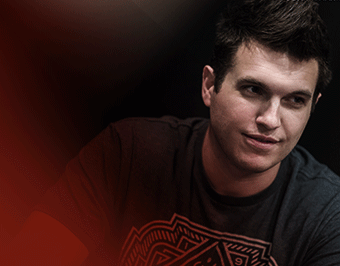The Starting Hands That Make the Most Money in Multiway Pots
If you play in games with loose and passive opponents, read on.
You’re about to get some valuable advice for playing preflop in multiway pots.
After finishing this article, you will understand the answer to two important questions:
- Which hands perform best multiway pots?
- When should you enter a multiway pot?
Let’s dive right into the advice that will help you win more money in pots that are contested by three or more players.
Note: If you want to win at poker, you need a solid preflop strategy. This free Preflop Guide includes 8 easy-to-read charts and crucial tips that will help you play like a pro before the flop. Get it now!

Which Hands Perform Best in Multiway Pots?
To figure this out, it’s helpful to consider the difference between multiway pots and heads-up.
It’s pretty intuitive that as more players enter the pot, the more likely it is that someone will make a very strong hand (like two-pair or better).
Here’s how this should impact your preflop hand selection:
When a pot is likely to go multiway, you should mainly play hands that have a high probability of making two-pair or better by the river.
Which hands have a higher probability of hitting really strong hands?
- Pocket pairs
- Suited and connected hands
Pocket Pairs in Multiway Pots
Pocket pairs are extremely strong multiway candidates since they become a set on the flop 11.8% of the time. Compare this with a hand such as JT offsuit, which becomes two-pair or better just 4.8% of the time on the flop.
In other words, pocket pairs become very strong hands on the flop 150% more often compared to offsuit broadway hands (relatively speaking).
Suited and Connected Hands in Multiway Pots
Now, let’s move on to suited and connected hands. To demonstrate the value of being connected and suited, let’s compare two hands: QT offsuit and QT suited, using a piece of software called Flopzilla.
What you will see in the image below is the frequency at which each of these hands will become a strong hand (two pair+) or a strong draw on the flop:
QT suited flops a strong hand or draw 26.3% of the time, compared to 16.9% of the time for QT offsuit. That’s a 55% increase in very favorable flops for QT suited (relatively speaking), which will allow it to perform much better in multiway pots.
When Should You Enter a Multiway Pot?
Now that you know the hands that perform best in multiway pots, let’s talk about the scenarios in which you should play them.
First, let’s separate all preflop scenarios into four groups:
- You are not on the button or in the blinds.
- You are on the button.
- You are in the small blind.
- You are in the big blind.
When you are not on the button or in the blinds
When you are in a position prior to the button, you will want to be very careful about calling raises with the intention of playing multiway. With at least three players behind, you’ll oftentimes be better off 3-betting or folding (see: Should You Stop Cold-Calling?).
That said, you can widen your calling range in the presence of certain factors:
The more of these factors that are in play, the better calling the raise becomes.
When you are on the button
On the button, you can profitably call with more hands because, no matter what happens, you will always be the person last to act postflop. That gives you a large strategic advantage.
The same factors from the previous section still apply. For example, if the blinds are very weak players who rarely 3-bet, you can widen your calling range.
Before moving on to the next scenario, keep in mind that in these first two scenarios, folding doesn’t cost you any money. You have 0 chips invested into the pot, after all.
However, in the following two scenarios (the blinds), folding will cost you money because you have either 0.5bb or 1bb invested in the pot. So, the main question you have to ask yourself becomes: will calling the raise cost more or less than what’s already been invested?
When you are in the small blind
The small blind is a relatively tricky position because, no matter what happens, you will always be out of position postflop. That puts you at a large strategic disadvantage.
In this position, you should only call in very favorable situations. The same factors from above apply here as well.
When you are in the big blind
The big blind is the position in which you will be able to play the most hands. Versus a raise, you get a discounted price to call. Plus, you’re closing the action, so there is no threat of facing a squeeze behind.
But it’s not all sunshines and rainbows in the big blind.
One important caveat here is that, as more players enter the pot, your hand’s equity will drop faster than your pot odds improve. As a result, you should actually defend fewer hands in the big blind versus multiple opponents than you would against a single opponent (unless the raise size is very small — around 2bb).
Wrapping Up
During your next session, remember that you need the right kind of hand and some favorable factors to justify entering a pot that is multiway or has a high chance of going multiway.
That’s all for today!
Do you have any questions about playing multiway pots? Let me know in the comments below and I’ll get back to you as soon as I can.
Note: If you want to win at poker, you need a solid preflop strategy. This free Preflop Guide includes 8 easy-to-read charts and crucial tips that will help you play like a pro before the flop. Get it now!

Till’ next time, good luck, grinders!